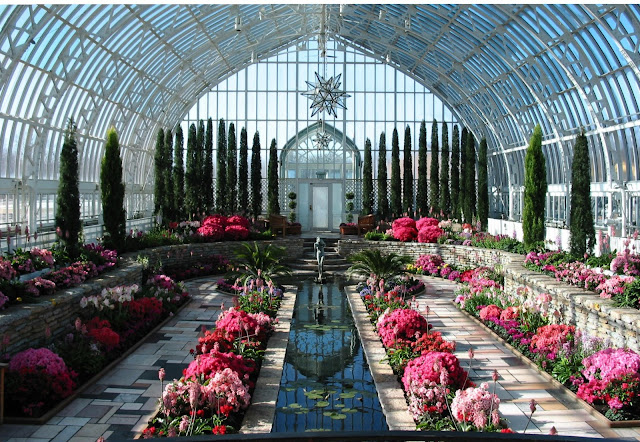 |
| What is Horticulture? |
It has been only recently - this morning in fact - that I have had to finally admit that maybe I am some kind of gardening snob. Why? Because after six, struggling years of intensive training in the black art of horticulture, I find that the red mist of lividity (I think that may be a real word) gently slips over my kindly veneer of tolerance whenever I am referred to as a gardener!
 |
| Old school gardener |
It comes down to this simple statement:
'...All gardeners may well consider themselves to be horticulturists, but not all horticulturists are gardeners...'
I of course, consider myself to fit within the latter. I am not saying that I don't garden as it is unavoidable if you want to maintain standards. I am just saying that I don't enjoy it.
So, what is horticulture?
 |
| Modern glasshouse production |
Horticulture is so diverse in its activities, incorporating plants for food (fruits, vegetables, mushrooms, culinary herbs) and non-food crops (flowers, trees and shrubs, turf-grass, hops, medicinal herbs) that no single person can ever know it all - although I have met plenty who think they already do.
Horticulture also includes related services in plant conservation, landscape restoration, landscape and garden design/construction/maintenance, horticultural therapy, and much, much more.
Horticulturists apply the knowledge, skills, and technologies used to grow intensively produced plants for human food and non-food uses and for medical personal or social needs. The work of a horticulturist involves plant propagation and cultivation with the aim of improving plant growth, yields, quality, nutritional value, and resistance to insects, diseases, and environmental stresses. We work as gardeners, growers, therapists, designers, and technical advisers in the food and non-food sectors of horticulture.
 |
| Micro-propagation laboratory |
So in defence of my earlier statement - and with gardening being only a tiny part of the horticultural world, am I really a gardening snob or just a horticulturist at heart?
For related articles click onto the following links:
What is Homeostasis?
What is Horticulture?
WHAT IS PERLITE?
WHAT IS A STUMPERY?







No comments:
Post a Comment